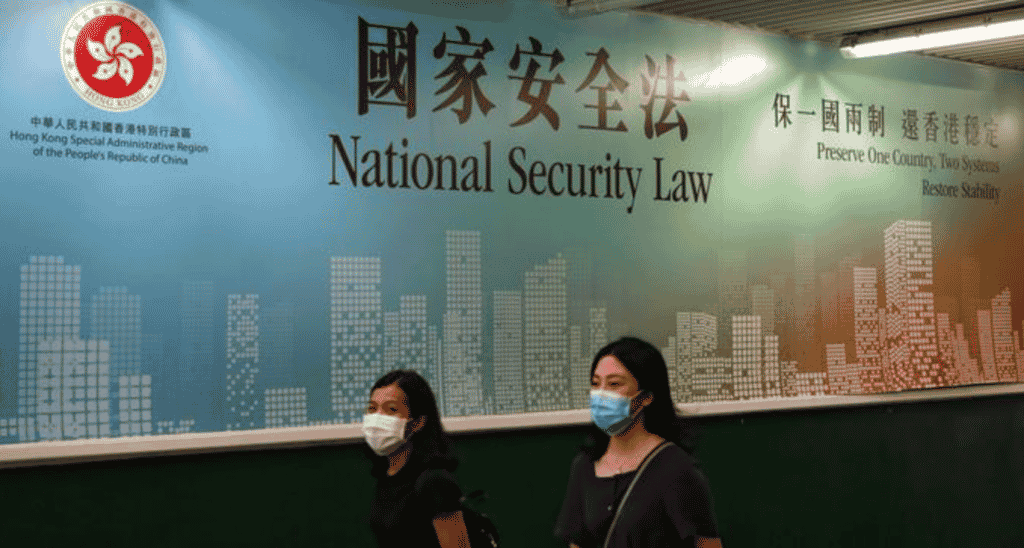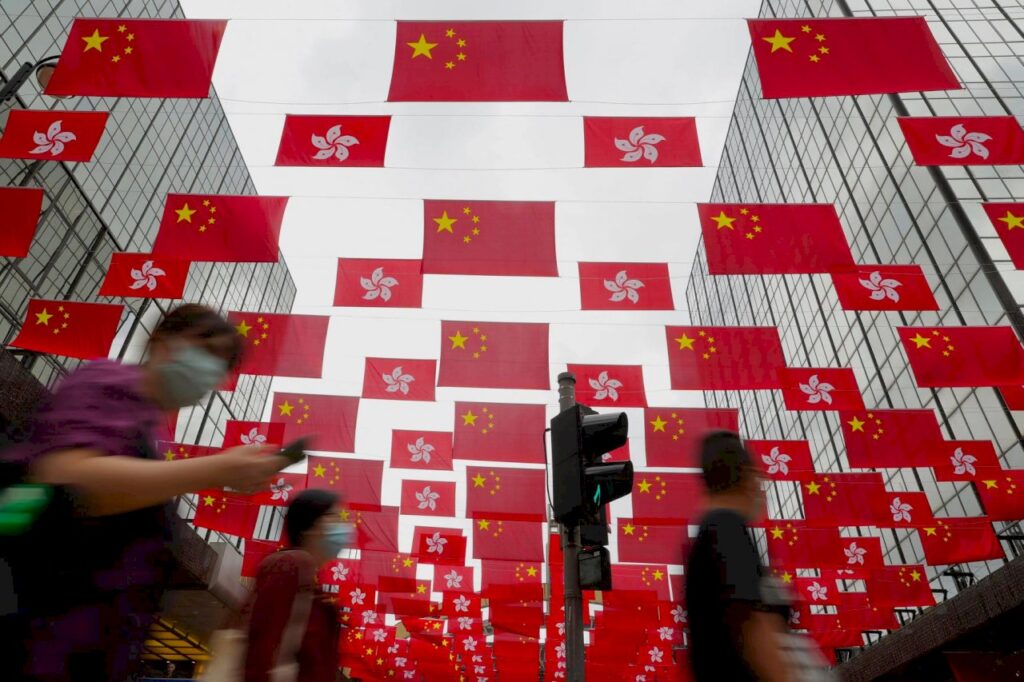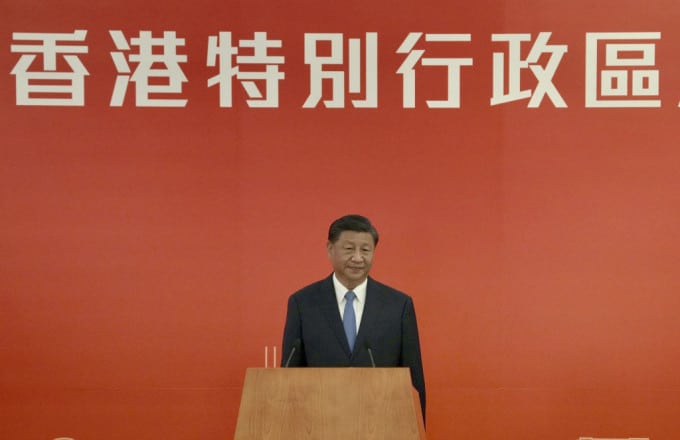Han Zheng, Vice Premier of the State Council in charge of Hong Kong and Macao affairs, revealed that the Hong Kong version of the national security law was finalized legislation after the Fourth Plenary Session of the Central Committee of the Communist Party of China in October last year. Revisiting the original sentence referring to national security is "Establish and improve the legal system and enforcement mechanism for the Special Administrative Region to safeguard national security, and support the Special Administrative Region to strengthen law enforcement." After the news came out at that time, it aroused heated discussion, saying that it was a repeat of Article 23 of the central directive. Pro. Even if the Hong Kong and Macao Affairs Office and the Liaison Office of the Central People's Government change their positions, the so-called iron-clad government officials will still be able to complete their hard tasks. Now it is implemented in the form of Annex III. It may be interpreted from the three aspects of legislation, law enforcement and justice.
The legal system is naturally the "decision + legislation" approach mentioned in the two sessions. The former is declarative and principled. The text of the draft has been widely reported online and will be passed today. The latter will be a substantive law, rumored to be detailed to criminal responsibilities and penalties, and will be implemented in two months at the earliest. The bill targets four crimes: secession, subversion of state power, terrorist activities, and interference by external forces. If in the future it is necessary to ban "Hong Kong independence" organizations, freeze the funds of crowdfunding platforms, or invite the wealthy "Wangbei Tower" back, there will be one more Legal channels.
Hong Kong's existing treason, Anti-Terrorism Ordinance and Societies Ordinance have relevant elements and should be the basis of the new law. It may also be necessary to amend the dissolution and winding-up arrangements under the Companies Ordinance. Compared with Article 23, the object of the crime of subversion has been expanded from the Central People's Government to the state power, and may cover acts such as attacking the Political Council and the Legislative Council, but the more controversial crimes of stealing state secrets and inciting rebellion are not included. The provisions are still being drafted, and it remains to be clarified how they are consistent with common law concepts and the Johannesburg Principles to balance national security, freedom of expression and freedom of information, and comply with the International Covenant on Human Rights.
Currently, the Macau model is the only reference for enforcement mechanisms. Hong Kong is likely to establish a "National Security Committee" composed of key officials such as the Chief Executive, Secretary for Security, and Commissioner of Police, which will report regularly to the Central National Security Committee. Cross-border law enforcement is always a sensitive topic, and the incidents of Li Bo, Zheng Wenjie, and Lin Zijian caused a stir in the city. If the national security and Hong Kong police enforce the law at the same time, it is not impossible for CIA and FBI robbers to appear like in the United States. Although it is risky and difficult to talk about expanding police powers at the moment, we should note that the Fourth Plenum of the Central Committee of the Communist Party of China proposed "supporting the SAR to strengthen law enforcement capabilities." I believe that the Hong Kong disciplinary forces will be responsible for law enforcement. If necessary, the national security department will provide training and assist in intelligence work. .
Mass panic is explained by force
Hong Kong people are worried about going north to be tried, but Wang Chen, vice chairman of the Standing Committee of the National People's Congress, emphasized that Hong Kong's administrative, legislative and judicial organs "effectively prevent, stop and punish acts that endanger national security", which means that Hong Kong's judicial institutions will handle related crimes . However, there are many doubts about the judicial process, and even the pro-establishment camp has failed to reach a consensus and cannot persuade the public to feel at ease. There are suggestions to set up special courts in Hong Kong to be tried by Chinese judges. Can the foreign judges of the Court of Final Appeal handle the cases at trial? National security crimes often involve secret information, so they are not suitable for public hearings. However, Hong Kong only conducts closed-door trials in rare circumstances, such as to protect the rights of children. Will this habit change?
Affected by various doomsday theories about Hong Kong, the sudden national security law for Hong Kong is destined to cause an uproar in the chaos. The Hong Kong stock market plummeted last week, and immigration became a hot search term on the Internet. People quit chat groups in panic, but this was the immediate reaction of citizens. The fear in this is so real. The general public and the International Chamber of Commerce hope to know clear details. The central and Hong Kong government's explanations cannot be hasty. If public sentiment worsens, Hong Kong society will always be hurt.
Ray Poon
Co-Convenor (Research), Path of Democracy



